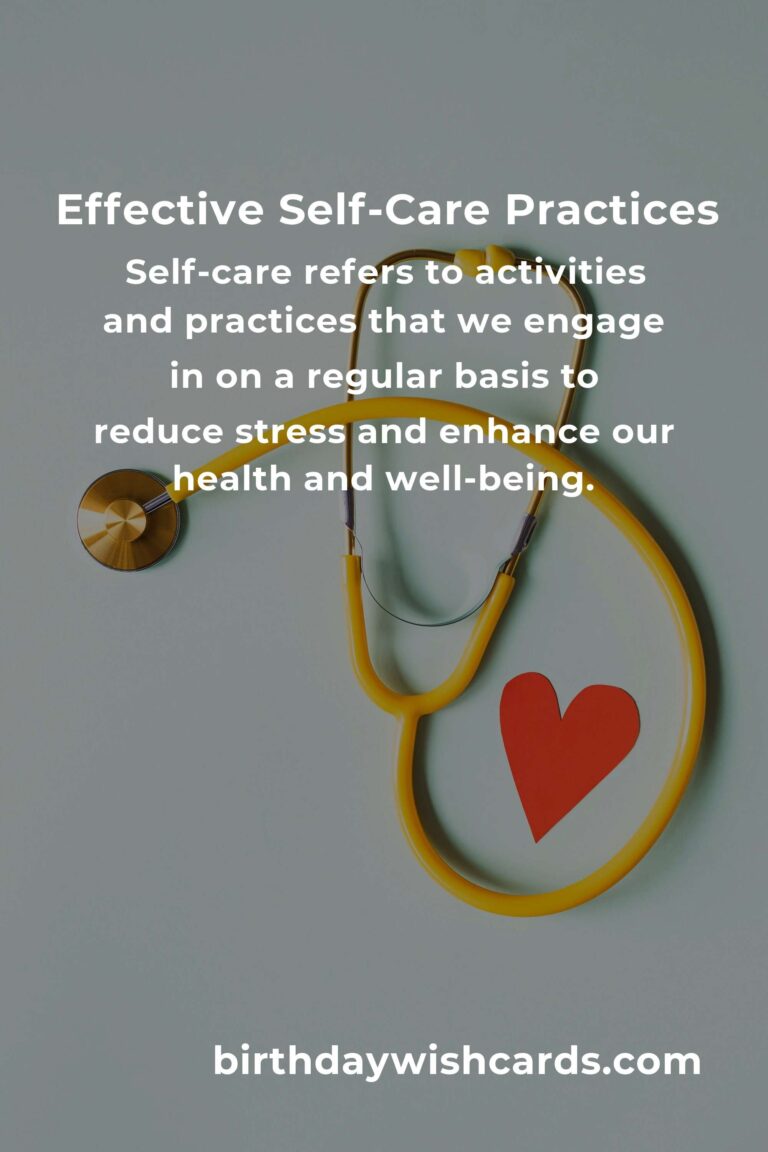
In today’s fast-paced world, self-care is more essential than ever. Understanding how to implement effective self-care routines can greatly enhance your physical and mental well-being. This comprehensive guide will delve into actionable strategies to incorporate self-care into your daily life.
What is Self-Care?
Self-care refers to activities and practices that we engage in on a regular basis to reduce stress and enhance our health and well-being. It’s about taking the time to reconnect with oneself and nurturing both the body and mind.
Importance of Self-Care
Practicing self-care is crucial for maintaining balance in life. It helps prevent burnout, reduces anxiety, and improves overall mood. By prioritizing self-care, you can ensure that you are at your best both physically and mentally.
Types of Self-Care
There are several types of self-care, each focusing on different aspects of your well-being. These include physical, emotional, mental, social, and spiritual self-care. Each type is important in creating a well-rounded self-care routine.
Physical Self-Care
Physical self-care involves activities that improve your physical health. This can include regular exercise, a balanced diet, adequate sleep, and engaging in activities that promote relaxation, such as yoga or meditation.
Emotional Self-Care
Emotional self-care involves understanding and nurturing your emotions. This can include activities like journaling, talking to a therapist, or engaging in creative outlets that allow you to express your feelings.
Mental Self-Care
Mental self-care involves keeping your mind sharp and engaged. This can be achieved through reading, solving puzzles, or learning new skills. It also involves setting boundaries and taking breaks to prevent mental fatigue.
Social Self-Care
Social self-care focuses on maintaining healthy relationships and connections with others. This can include spending time with loved ones, engaging in group activities, or participating in community events.
Spiritual Self-Care
Spiritual self-care involves nurturing your spirit and finding purpose. This can include practices like meditation, prayer, spending time in nature, or participating in activities that align with your values and beliefs.
Creating Your Self-Care Routine
To create a self-care routine, start by identifying which areas of your life need more attention. Set realistic goals and prioritize activities that you enjoy and that meet your needs. Remember, self-care is not a one-size-fits-all approach and can be customized to fit your lifestyle.
Tips for Maintaining Your Self-Care Routine
Consistency is key. Set aside time each day for self-care, even if it’s just a few minutes. Be flexible and willing to adjust your routine as needed. Listen to your body and mind, and don’t be afraid to seek help if you’re struggling to maintain your self-care.
Conclusion
Effective self-care routines are an integral part of a healthy lifestyle. By prioritizing self-care, you can enhance your well-being, increase your resilience, and improve your quality of life. Start small, be patient, and remember that taking care of yourself is a journey, not a destination.
Self-care refers to activities and practices that we engage in on a regular basis to reduce stress and enhance our health and well-being. Practicing self-care is crucial for maintaining balance in life. There are several types of self-care, including physical, emotional, mental, social, and spiritual self-care. Consistency is key when maintaining a self-care routine. Effective self-care routines are an integral part of a healthy lifestyle.
#SelfCare #WellBeing #Health #MentalHealth #SelfImprovement













